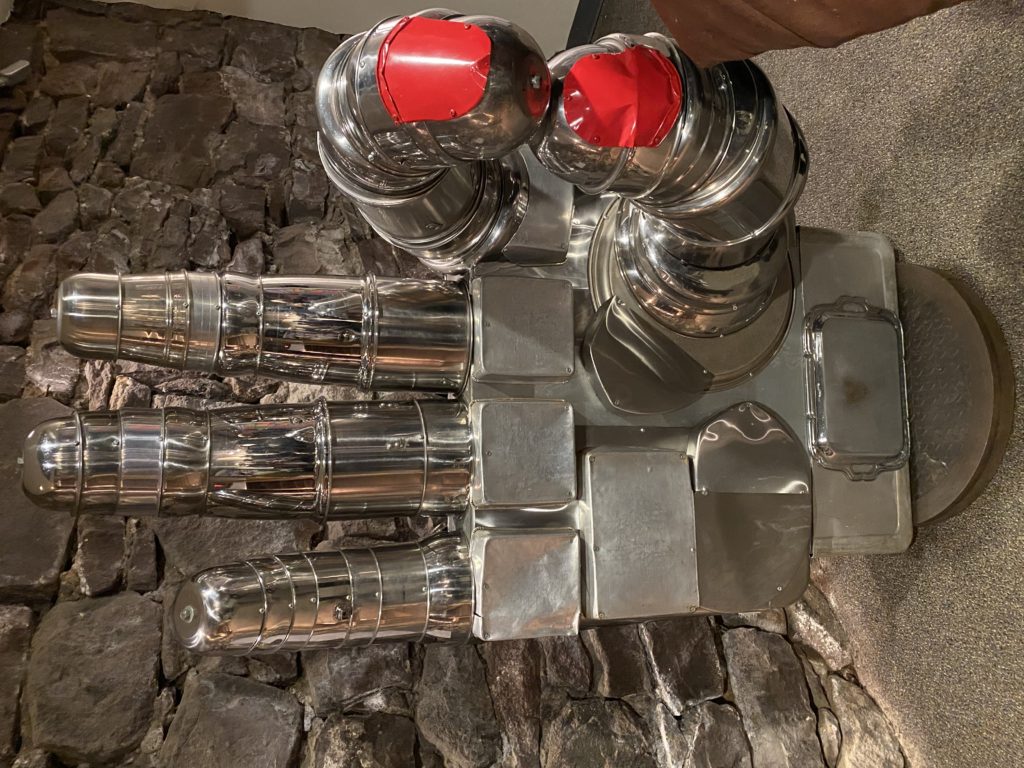It has been a long time since I have posted on this blog. It has lain fallow during the long months (now years) of Covid. With theatre in this country in even greater crisis than it has ever been in before, I wondered if there was a point to continuing on with this site, in this medium. Passage Theatre’s necessary and propulsive The OK Trenton Project inspired me to return.
In 2017, Black and Brown students of Camp Mercer sponsored by Home Front (as a matter of disclosure, my church frequently works with Home Front on charitable projects) under the mentorship of artist Eric Schultz, created a sculpture entitled “Helping Hands”, a work that was displayed at the intersection of Montgomery and Perry Streets in Trenton, NJ. It’s time there, however, was short-lived after accusations that it was a gang sign forced its quick removal. Since it vanished before the plaque could even be installed, the work has become known as “Ok Trenton”.

Playwrights David Lee White, Richard Bradford (who is a member of the acting company as well) and the rest of the ensemble have crafted a piece of documentary theater that seeks to understand why exactly “Ok Trenton” was removed. This choice serves the proceedings exceedingly well. White, Bradford, and their collaborative team seek to find out the who, what, where, when of the event beyond the hyperbolic headlines. In that, the play stands as a superlative work of investigative journalism. Schultz, the teens who worked on the project, gang members (current and former), politicians, other artists, and community activists were interviewed, and the interviews with them are performed by the tight-knit ensemble of five. Further, in the best tradition of The Tectonic Theater Project, they also want to find out the how and even more importantly the why. What elevates the proceedings is that that why remains elusive to the very end. No compelling reason for the destruction of public art reveals itself because, at the end of the day, what compelling reason could there be?
Overseen by the director (and Passage’s artistic director) C. Ryan Domingues, the stage is a judgement free zone – which proves difficult for the audience to maintain when one particular character emerges toward the end. What we the audience witness is the symphony of Trenton in all of its beautiful messy complexity, its hopes, its history, its trials, and its tribulations. As much as Bradford is the protagonist as he, Columbo-style, doggedly seeks resolution, the hero of the play is Trenton itself.
A piece of documentary theater can prove to be a difficult construct as there is frequently a tension between the needs of the documentary part of the equation and the theater part of the equation. White and Bradford make a daring choice when the pivot on the question of “has something like this ever happened before?” And, the answer is yes: a mural of Michael Brown and then a painting of the Puerto Rican flag on the side of a house. What The OK Trenton Project conveys achingly, passionately is that the diverse communities of Trenton long to express themselves through art in the face of reflexive and thoughtless opposition. As the company interviews local politicians, they find the official articulation for removing the sculpture is inchoate at the best (and it is rare we even get there). The tragedy here is the tragedy of the nation: irrational anger, resentment, grievance, fear is all that is needed to shut down someone just trying to have voice. The teenage artists have a clearer vision of trying to create a positive force for good, then those who seek to shut them down. Theatre is at its best when it can take the local, specific, and individual and make it universal. That is certainly what White, Bradford, and the company have accomplished.
Domingues makes great use of The Mill Hill Playhouse to represent all of Trenton. The company is uniformly excellent. The cast takes on multiple roles. Briefly, each stands out in a specific turn: Kevin Berger as Schultz, Carmen Castillo as graffiti artist Leon Rainbow, Molly Casey Chapman as Councilwoman Marge Caldwell Wilson, Wendi Smith as drama teacher Felicia Brown, and, most of all, Bradford, playing himself.
As part of its curtain speech, Passage welcomes its audiences back to live theatre. Thank you Passage for allowing me to return to my blog.
